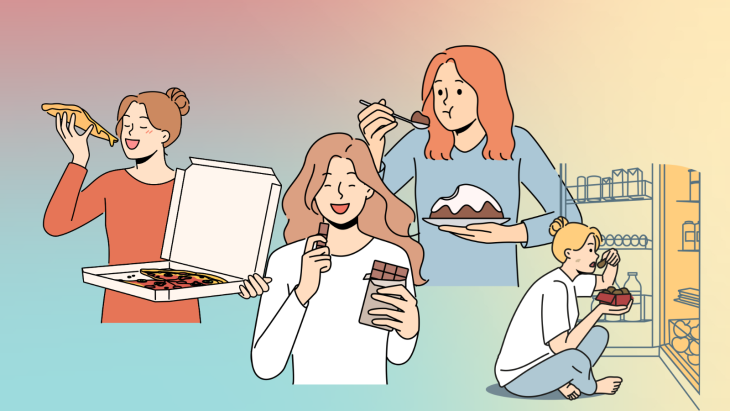Recent Posts
- I broke up with my partner, but now I am having doubts. Did I do it out of the right reasons or was I just being fearful?
- My Quick Temper Pushes People Away. What Do I Do To Manage My Anger?
- How does noise affect my mental health?
- I want to be a better problem solver. What is a step by step approach?
- Escapism. When is it healthy? When is it damaging?
Most Popular
"A healthy mind in a healthy body," they say. But what if I am struggling with my eating habits?

"A healthy mind in a healthy body," they say. But what if I am struggling with my eating habits?
In the decades after the 2000s, studies have reported significant increases in the number of people who try to manage their weight worldwide. In the United States, numbers have been quite consistent too. Almost half of the US population are trying to lose weight every year.
Eating habits in weight management
People want to manage their weight for many reasons, but the topmost reason is to improve their well-being and long-term health. (1) Despite our intentions to be healthier, statistics show that only 1 in 6 people are able to maintain their healthy weight and the biggest hindrance to weight management is poor eating habits.
Our eating habits affect our mental health.
Despite knowing healthy eating habits, people still find them difficult to do. Research has now produced evidence that there is a strong link between physical health and mental health. When we have poor diet quality due to our habits, we also have poor mental health outcomes, while increasing healthy lifestyle practices lead to fewer symptoms of depression and other mental health issues.
- Consuming fruits and vegetables every day, meeting national dietary guidelines
- Not eating too much processed food that are high in salt, unhealthy fats and sugars
What are signs of poor eating habits?
- Discomfort in digestion: After eating food high in salt, our tummy might feel tight and too full. We regularly experience this bloating feeling.
Poor gut health also shows as being frequently gassy or constipated. You may lack fiber in your diet from fruits and vegetables. Fiber serves as nutrients for your gut good bacteria.
How to jumpstart a healthy digestion: Increase consumption of fruits and vegetables that are high in vitamins, minerals, antioxidants and fiber. Also control salt consumption. Limit it to about 1 teaspoon a day (2,300 mg) for healthy adults.
- Mental exhaustion. You become more moody, you focus less and your attention span is shortened. Aside from tiredness, your mind may lack the nutrients it needs to function optimally.
How to jumpstart our mind: Our brain cells need high quality nutrients like Omega 3 fatty acids that can be obtained from nuts, fish, and fish oil supplements. Reviews of studies on the brain benefits of Omega 3 show that it increases the brain’s capacity to learn, memorize, and feel good!
- Compromised immune system. When you notice yourself getting sick more often and recovering much slower than you used to, your immune system might be experiencing compromise. A diet that is rich in a variety of nutrients takes care of your immune system.
How to jumpstart your immune system: Make sure your plate contains nutrient-rich fruits, vegetables, protein and healthy carbohydrates. One great rule of thumb is to “eat the rainbow” everyday. Instead of eating only specific types of food, try adding more variety of food (like the colors of the rainbow) to every meal.
Dull hair and skin troubles. What we see on the outside often is a reflection of our body’s state inside. Our skin, hair and nails require certain nutrients to be healthy such as Vitamin C, the B-complexes, Vitamin D, collagen, iron, Omega 3 fatty acids and many more!
How to jumpstart our skin and hair health: Provide your diet with antioxidant-rich food. Dark colored fruits and vegetables are high in these flavonoids or plant antioxidants!
- Emotional eating. We want to manage our stress and cope with a stressful day at the office. It is tempting to eat our comfort food (which is sometimes something high in salt, fat or sugar) to make us feel good and just eat the stress away.
How to jumpstart managing emotional eating: Instead of reaching for our favorite food after being stressed, why don’t we use another coping mechanism first before eating? Maybe we can talk with a sympathetic friend or a family member, take a walk outdoors, or even do a 20-minute jog. Breaking unwanted eating habits may be the next step for you to achieve success in weight control. Once we become aware of our bad eating habits, we can make small changes to our behavior to influence a positive change in our daily routine. Consult your mental health therapist or counselor to talk with you more about healthy coping mechanisms.
With these healthier eating habits, you can improve your mental wellbeing and long-term health.







Comments